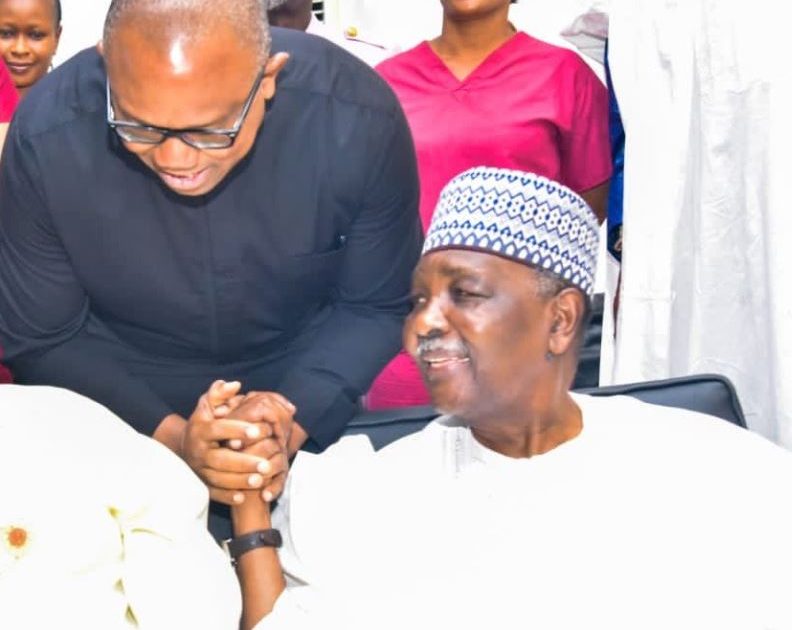In a recent show of respect and reflection, Peter Obi, the 2023 presidential candidate for Nigeria’s Labour Party, took to social media to celebrate the 90th birthday of former military leader General Yakubu Gowon. Gowon, who led Nigeria during a tumultuous period marked by civil war, received accolades from numerous prominent figures, including current and former presidents. Obi’s heartfelt tribute acknowledged Gowon’s legacy of sacrifice and leadership, stressing the importance of unity and love amidst a nation still grappling with the repercussions of past conflicts. His remarks came at a time when the spirit of reconciliation and nation-building is of paramount importance, demonstrating a broader call for healing within Nigeria.
Obi’s recognition of Gowon’s milestone, though well-intentioned, did not escape criticism. Some Nigerians viewed Obi’s message as provocative or inappropriate, reflecting the ongoing tensions surrounding historical wounds. In subsequent tweets, Obi clarified his position, emphasizing that his congratulatory message was rooted in the values of forgiveness and hope. He expressed his belief that true heroism lies in the ability to forgive, especially when addressing the injustices and scars left by Nigeria’s civil war. By reaching across the divides of the past, Obi sought to model the behavior he hopes to inspire in others, advocating for a shift towards a future tempered by compassion rather than bitterness.
Reflecting on Nigeria’s history, Obi spoke candidly about the lasting impact of the civil war that raged from 1967 to 1970—it remains a critical juncture in the national consciousness. He pointed out that General Gowon, who was the chief architect of the war, has now reached the venerable age of 90, alongside other figures like Olusegun Obasanjo, who played significant roles during that era. Obi argued that their continued presence could be seen as a divine opportunity for healing and for navigating towards a reconciled Nigeria. His remarks also serve to highlight the progress made since the war, including the dignified burial afforded to Biafra leader Chukwuemeka Odumegwu Ojukwu—an act that symbolizes a step towards healing.
In articulating his views on forgiveness, Obi invoked biblical teachings that resonate deeply with Christian doctrine. He stressed that, while hard for many to accept, forgiveness is vital for societal growth and personal freedom. Citing passages from the New Testament, he underscored the necessity of letting go of anger and resentment to foster a more just and peaceful society. Obi’s reflections draw a parallel between personal healing and national reconciliation, suggesting that the journey toward redemption begins with individual efforts to forgive.
Moreover, Obi recognized that not everyone shares his perspective on the legacy of figures like Gowon, particularly those still grappling with the pain of loss from the civil war. He understood that responses to historical trauma can vary significantly, often leading individuals to harbor feelings of anger that can stymie progress. However, he urged those who felt hurt by his gesture to reconsider their stance and join him in a concerted effort to dismantle the barriers of hatred that continue to plague Nigeria. He maintained that a united front is essential for moving beyond historical grievances and building a better future.
Ultimately, Obi’s message is both a call to action and a plea for empathy, embodying his vision for a New Nigeria—a nation built on the foundations of good governance, justice, and lasting peace. As he concluded his remarks, he reiterated the pressing need for unity and collaboration among Nigerians to foster an environment conducive to healing. His belief in the transformative power of good governance, which thrives in an atmosphere of peace and justice, reflects a profound desire not only for national renewal but also for a society where forgiveness and understanding replace hatred and division. In this light, Obi’s tribute to Gowon extends beyond mere celebration; it encapsulates a broader commitment to reconciliation and the hope for a more cohesive future for Nigeria.














